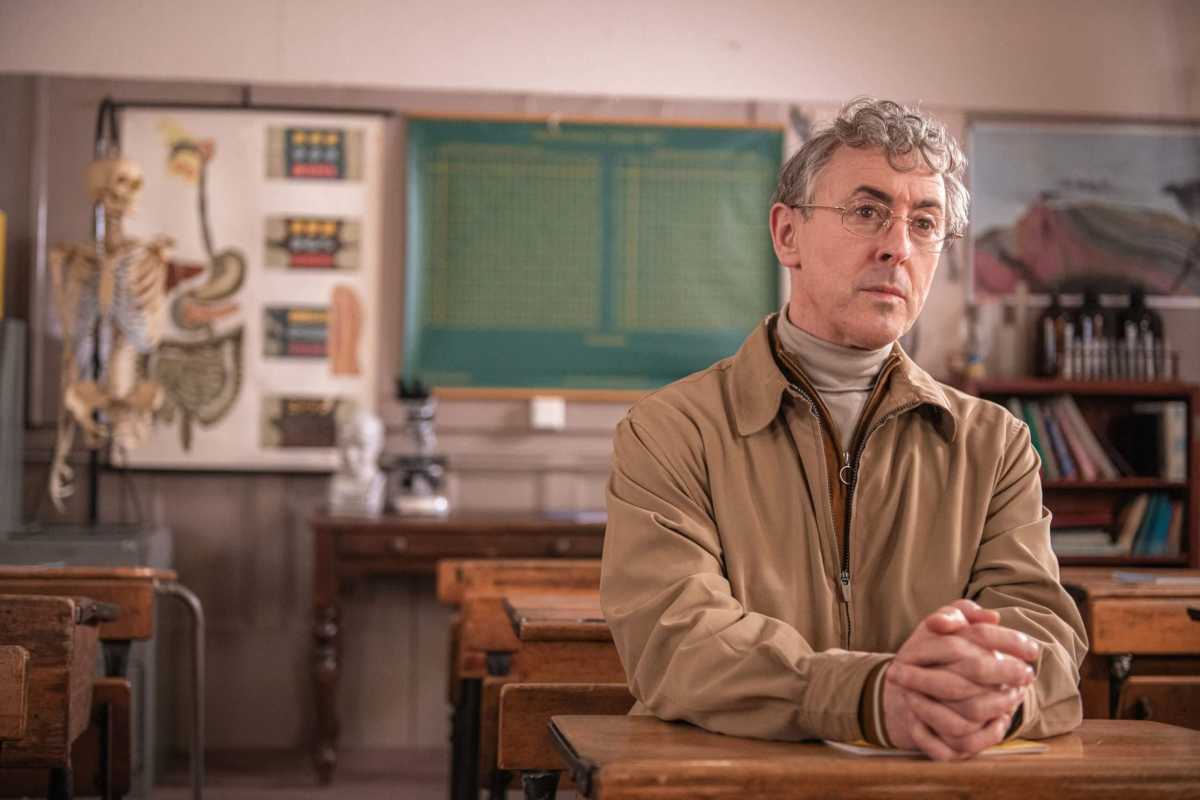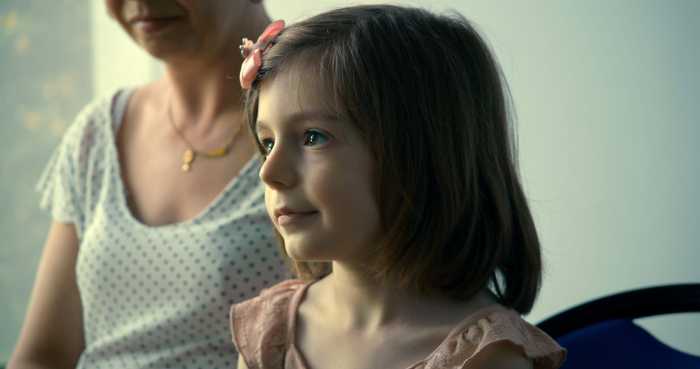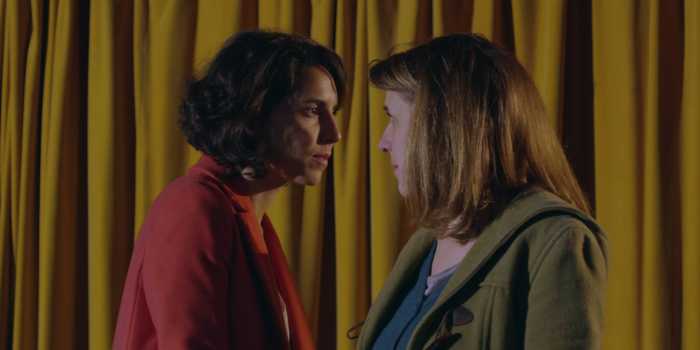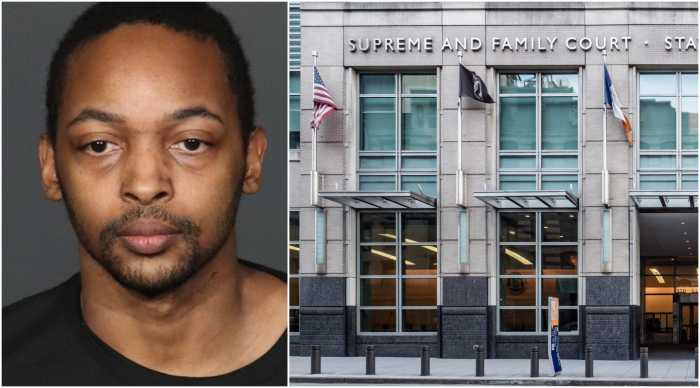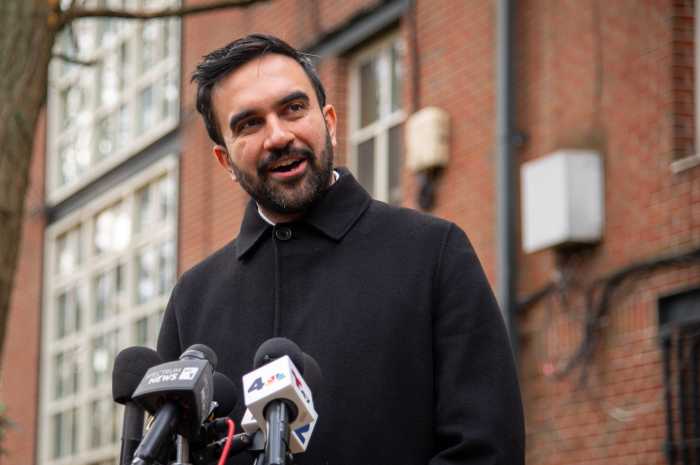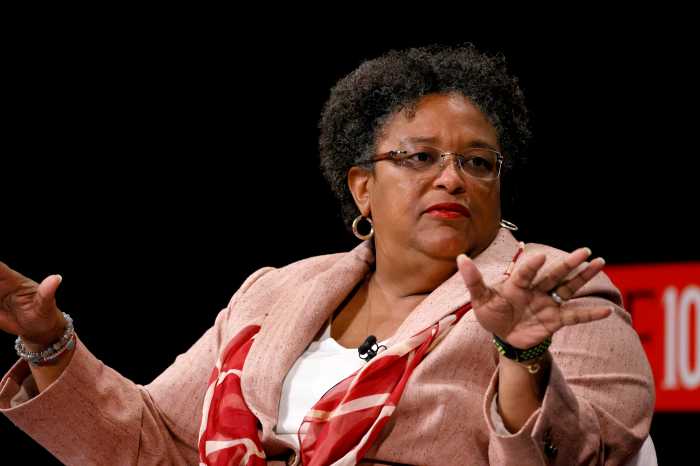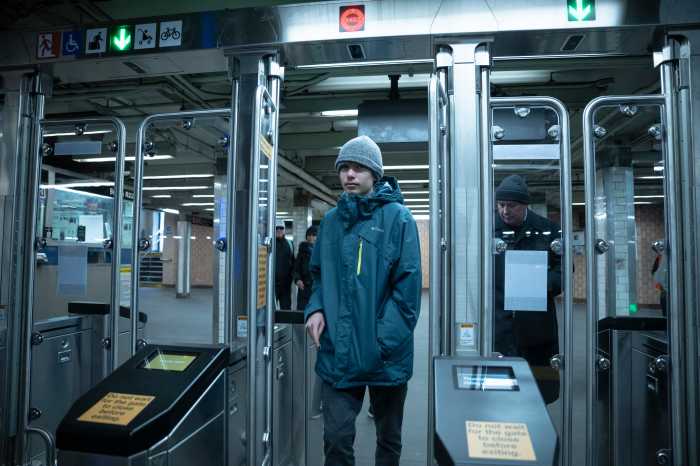Gay Scottish director Jono McLeod’s “My Old School” revisits the teen drama in documentary form. McLeod cast out bi actor Alan Cumming to lip-sync the words of his film’s main subject, a 32-year-old Scotsman who returned to school and claimed to be a boy half his age, when the actual man was willing to sit for an audio interview but refused to appear on camera. He used the pseudonym Brandon Lee, and both McLeod and Cumming actually were his classmates. (Back in the late ‘90s, Cumming was set to direct and star in a narrative film about Lee, but it was never produced.) “My Old School” combines animation with present-day interviews, posing Lee’s middle-aged friends back at their old desks. McLeod himself speaks about his teenage experiences.
Lee claimed to be a Canadian boy whose mother, an opera singer, died in a tragic accident. In reality, his accent was faked, and his mother was still alive, now presented as his grandmother. He got a perm to change his appearance. The only video clip of him taken at the time shows his performance in a school production of “South Pacific.” It’s the film’s key scene; while appearing to act badly onstage, he pulled off a brilliant turn as a teenager. In a twist that would seem too phony in fiction, he sang “Younger Than Springtime.” He also kissed a 16-year-old girl during the play. While the film never hints that he engaged in predatory sexual behavior, the clip is creepy, suggesting how a sleazier man could’ve taken his pose as a teenager to dangerous depths.
At first, “My Old School” feels pretty lighthearted. The animation is colorful but somewhat crude, with static backgrounds. (The TV show “Daria” was an inspiration.) Lee is drawn with eyebags and the start of a double chin, clearly marking his difference from the real teenagers with whom he went to school. Each interview subject’s name appears in large, bright yellow letters. Lee was generally liked by his classmates. One man says that Lee’s friendship raised his social standing and even saved him from bullying. He introduced one of his friends to classic punk albums like Wire’s “Pink Flag” and Television’s “Marquee Moon”; while this took place in the early ‘90s, Lee was old enough to have heard them as a genuine teen upon their original release in the ‘70s.
Once the audience gets the full picture, “My Old School” takes on a tragic resonance. Lee may have been able to pass as a teenager because TV shows and movies usually cast actors well into their 20s as high school students. But even at the time, his classmates could tell that he looked earlier than them: he was nicknamed “thirtysomething.” After his original graduation, he attended medical school for a semester but dropped out. He worked a menial job till he was 30 and always felt like a failure. Even after he was exposed as a con artist, he never gave up his dream of becoming a doctor. When McLeod is asked on camera why Lee wouldn’t allow his face to be used in the film, he cuts quickly before saying anything, but one can imagine that even nearing 60, Lee wouldn’t want to do anything that might destroy his chances of still going to medical school.
As a story, “My Old School” moves one step forward, two steps back. It reveals a piece of information about Lee, then takes it back as fictional a few too many times. For example, the audience is first told that Lee was exposed as a fraud after getting arrested following a fight on a school trip to Spain when the police found his false passport, and then a woman says that this story was a lie. This uncertainty is repeated throughout the film, to the point where it starts to feel gimmicky.
The incorporation of fictional performance into documentaries (as well as true crime TV) has grown quite common, but it’s still startling to cast a movie star amidst ordinary people speaking about their real experiences. However, Cumming’s performance avoids showiness. McLeod films the actor differently from any of his other subjects. While they’re always shown with the camera facing them head on, Cumming is also framed in profile. His lip-syncing of Lee’s voice quickly feels seamless.
“My Old School” feels slightly stretched out, but McLeod finds a balance of tones. A film that starts out as a nostalgic comedy winds up becoming a story of a man who never grew up. Lee’s friends may have liked him, but he hated his entire time back at school, yet he never really escaped it and allowed himself to live out his dreams. His story contains more resonance than a simple tale of a con artist.
“My Old School” | Directed by Jono McLeod | Magnolia Pictures | Opens July 22nd at Film Forum

